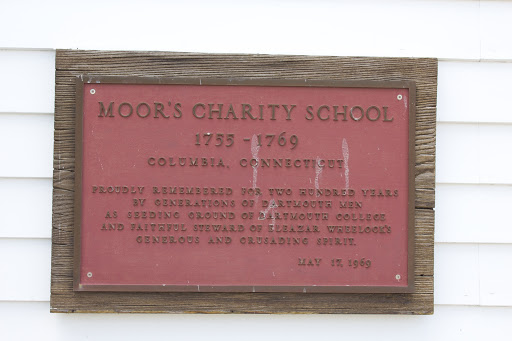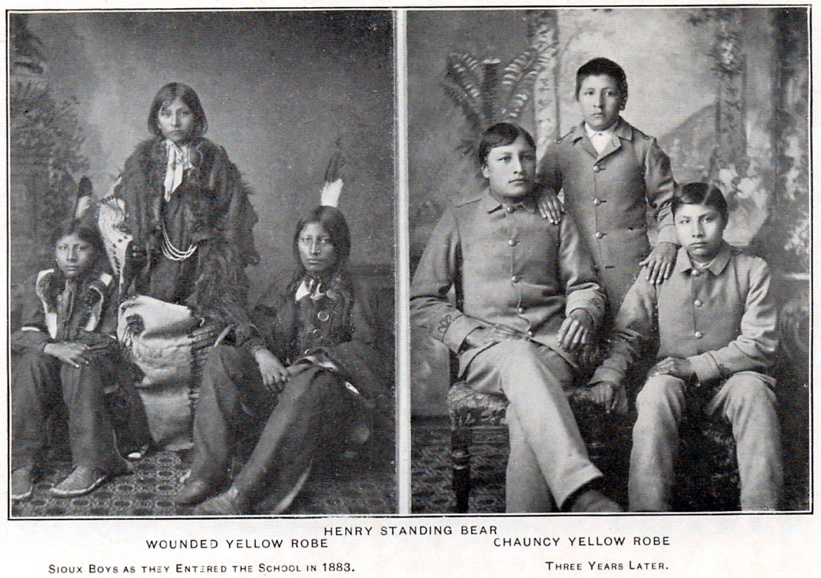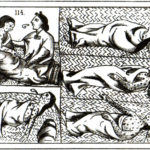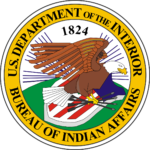A Brief Timeline
From 1883 to 1998, nearly 150,000 indigenous children were forcibly separated from their families and sent to the government-funded, church-run boarding schools in an attempt to assimilate them. Once there, they were frequently neglected and abused.
-
1500
Missions schools opened up to christianize Indigenous peoples of the Americas.
-
1619
The English colonists in Jamestown founded a school for Indian children in order to convert them to Christianity. Like the Spanish, the English wanted the Indians to declare submission to the Crown and the Church of England and to work for free.
-

1754
Moor’s Indian Charity School was founded in Lebanon, Connecticut. It was later moved to Hanover, New Hampshire when Presbyterian ministers in Scotland offered to raise money for the education of the Indians.
-

1763
British forces commander, Sir Jeffrey Amherst, wrote ““You will do well to try to inoculate the Indians [with smallpox] by means of blankets, as well as to try every other method, that can serve to extirpate this execrable race.”
-

1755
"Subjects embrace all opportunities of pursuing, captivating, killing & destroying all and every of the aforesaid Indians.” according to the Phips Proclamation in Massachusetts."
- Phips Proclamation
-

1790
The “civilization campaign” of Indigenous peoples began.
-

1819
The Civilization Fund Act paid missionaries $10,000 to “civilize” indigenous people. This Act led to the formation of nearly 150 boarding schools over the next couple decades. These boarding schools were run by either the government or christian missions. Their collective goal was to assimilate Indigenous people into white society by eliminating their culture & customs. The methods used to “christianize” & “civilize” Indigenous people was nothing short of ethnocide.
-

1824
The BIA (Bureau of Indian Affairs) is created by the War Department.
-
1834
60 schools are established by various religious organizations
-
1850
American children at school by Michael C. Coleman, 1850-1930.
-
1871
At the time, the primary goal of Indian education (BIE) was assimilation of Indian children. Students were forbidden from speaking their languages and were not allowed to engage in their traditional cultural practices.
-
1879
Carlisle Indian Industrial School is formed. 147 indigenous children were taken from their homes and communities to attend Carlisle in Pennsylvania.
-
1890
In December, soldiers entered Orayvi and, through coercion and force, secured 104 children for the school in Keams Canyon. The same scene repeated itself in 1894 at Second Mesa. First, the government sent policemen to Second Mesa to round up Hopi children and bring them to the school in Keams. When this failed, School Superintendent Goodman requested soldiers to escalate the show of force in the villages.
Plummer suggested that having the troops take the children might not be wise. Instead, he suggested sending troops "to arrest and confine the headmen who are responsible for the children not being sent to school." Thus, the precedent for arresting village leaders who resisted the U.S. government was well established by 1894.
-
1887
-
1887
Indian Affairs Commissioner Bans native languages in schools. At Hopi, pressure to send children to boarding schools
-
1891
Indian Schools Act provides for the construction of Indian industrial schools modeled after Carlisle Indian Industrial School.
-
1893
Mountain pleasant Indian industrial School opened in 1893. It housed an average of 300 Native American students per year up until it closed in 1934.
-
1900
It was estimated there were 20,000 children in Indian boarding schools
-
1902
“Haircut order” created. Stated that indigenous men with long hair could not receive rations.
-
1911
The U.S. Army forcibly enters the Hopi village of Hotevilla and captures 69 children to attend boarding school.
-
1918
Carlisle school closed. Between its founding & closing, 200 children were buried in their cemetery.
-
1919
Influenza epidemics sweep reservations & boarding schools.
-
1923
Formerly Fort Apache was turned into the site for BIA’s Theodore Roosevelt Indian Boarding school. Youth were involuntarily taken from their home for the purpose of “taking the Indian out of the Indian. - (Sir John A. Macdonald)”.
-
1924
Trachoma Eye Experiment surgeries begin on Indigenous people.
-
1925
60,889 Indigenous children are in boarding schools
-
1926
Nearly 83% of Indian school-age children were attending boarding schools.
-
1927
Investigations conducted by the Bureau of Indian Affairs (BIA) determined that a large number of patients show no signs of mental illness. While the asylum is open, more than 350 patients are detained there without consent, in horrific conditions. The first two years it is open, there were no doctors, nurses, or trained personnel for mental health concerns, and patients as young as 11 years old are chained to beds. Tourists come in summer to view the “insane Indians.” At least 121 patients die. The asylum is closed in 1934 (Walker, 2015 & Stawicki, 1997).
-
1930
The senate investigating committee finds that missionaries& churches who run boarding schools authorize kidnappings of Dine children in order to fill their quotas..
-
1934
The Canton Asylum is Closed.
-
1940
Carlisle Model of schools had ceased but the after effect on indigenous families was devastating. Indigenous children were being deemed to be in unfit households with unfit mothers. Although, it was estimated that 25-35% of all indigenous children were being placed outside their families and communities - even if they had fit & available relatives.
-
1960-1980
Indian Mountain School in Connecticut - 16 students alleged that they were sexually abused. It was estimated that 100 middle school’s students were violated by staff members.
-
Timeline
Item content. Click the edit button to change this text. -
1960
A congressional report comes out stating that teachers still see their role as “civilizing” indigenous students not educating them. Harsh discipline and punishment were still being emphasized.
-
1953
Congress seeks to abolish tribes, relocate American Indians through the Termination Act. Congress passes a resolution beginning a federal policy of termination, through which American Indian tribes will be disbanded and their land sold. A companion policy of “relocation” moves Indians off reservations and into urban areas.
-
1966
216 BIA Boarding schools are still in operation within the United States.
-
1971
The NAACP Legal Defense and Education Fund and Harvard University’s Center for Law and Education release a report charging gross misuse of funds designated for the benefit and education of Indian children.…”[B]y any standard, Indians receive the worst education of any children….”
-
1973
Tens of thousands of American Indian children attended the boarding schools, peaking in the 1970s, with an estimated enrollment of 60,000 in 1973. Although conditions improved over the years and some graduates have fond memories of their schools, the experiences at these institutions have had a lasting impact on Native American individuals, families, and culture.
-
1978
The Indian Child Welfare Act, which was a federal law that ensured indigenous children would not be removed from their families by public or private agencies, was passed by congress.
-
1988
The Termination Act of 1953 is repealed.
-
1990
The Native American Languages Act was passed ensuring Indigenous children’s right to learn their own language. & history. Up until this point there was still racism, discrimination, bias, and human right violations when it came to indigenous children learning their history and practicing their cultural customs.
-
2010
South Dakota passes a bill, HB1104, stating indigenous children who suffered abuse could not file if they were over 40 years old - knowing most survivors were over 40 years old.
-
August 7, 2017
The U.S. Army began exhuming the graves of three children from the Northern Arapaho tribe who had died at Pratt’s Carlisle Indian Industrial School in the 1880s. The children’s names were Little Chief, Horse, and Little Plume—names they were forbidden to use at the school.
-
1898
Canton Indian Insane Asylum is established.
- Click to share on X (Opens in new window) X
- Click to share on Facebook (Opens in new window) Facebook
- Click to share on Reddit (Opens in new window) Reddit
- Click to share on Telegram (Opens in new window) Telegram
- Click to share on Pinterest (Opens in new window) Pinterest
- Click to print (Opens in new window) Print